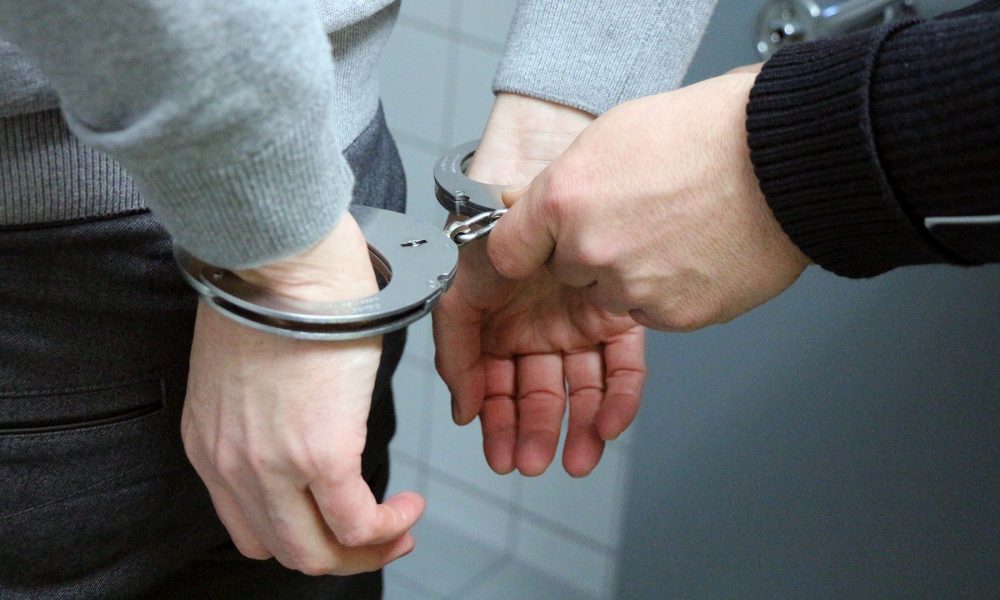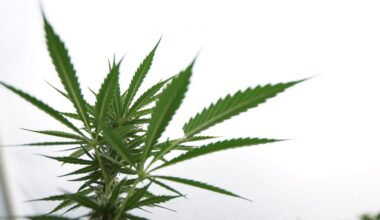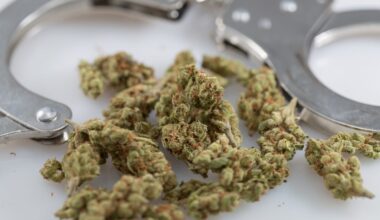A Pennsylvania bill meant to promote research into the therapeutic potential of psilocybin mushrooms for certain mental health conditions may be in jeopardy, with the sponsor saying that the chair of a key House committee is expressing reservations even after the legislation was amended in an effort to build support.
The legislation from Rep. Tracy Pennycuick (R)—titled the “Psilocybin Data Act”—was originally introduced last year, but it did not advance. A revised version filed this month notably removes a key provision allowing state Department of Health to authorize two entities to cultivate the psychedelic for research purposes.
But the sponsor tells Marijuana Moment that the “watered down version” is still facing a major obstacle in the committee where it’s been referred.
Pennycuick said that supporters are “struggling” with the chair of the House Health Committee, Rep. Kathy Rapp (R).
“I am not sure she will even run this,” the sponsor said. “To say I am frustrated is mild compared to how I really feel. I have worked this bill for months.”
Pennycuick said that she’s been working to build support for the legislation for months, but then the chairwoman “shifted course due to an overdose death in her district” allegedly involving so-called “magic mushrooms.”
Two points on that: First, the bill would not legalize psilocybin. Second, the psychedelic has a very low toxicity rate. The Drug Policy Alliance explains that “sensationalized media coverage of psychedelic-related deaths [have] misattributed the role of psychedelics like psilocybin in causing suicide or accidental death.”
Rapp’s office did not respond multiple requests for comment and clarification from Marijuana Moment.
—
Marijuana Moment is already tracking more than 1,000 cannabis, psychedelics and drug policy bills in state legislatures and Congress this year. Patreon supporters pledging at least $25/month get access to our interactive maps, charts and hearing calendar so they don’t miss any developments.![]()
Learn more about our marijuana bill tracker and become a supporter on Patreon to get access.
—
“I don’t understand it,” Pennycuick, an Army veteran herself who lives with PTSD, said. “It is frustrating.”
The lawmaker suffered a traumatic experience as an Army helicopter pilot, left stuck in a vehicle that caught fire following an explosion. She told Philadelphia Magazine that the psychological damage of that event “didn’t hit me until five or six years later,” and she hopes to be “patient number one” for psilocybin clinical trials as a therapeutic tool for her own condition.
Her newly revised bill, HB 2421, starts with a declaration of purpose stating that the Commonwealth is “in desperate need of innovative and cost-effective mental health treatment to combat this significant public health crisis,” citing statistics about increased rates of mental health complications.
“A growing body of research suggests that psilocybin, administered in a controlled setting, may be the most effective tool at our disposal to combat this public health crisis,” it says. “This Commonwealth, including this Commonwealth’s substantial veteran community, will benefit from establishing a psilocybin regulatory system to combat the worsening mental health crisis.”
The legislation would make it so the state health department would need to work with at least one academic institution to conduct clinical trials “for the purpose of collecting and studying the efficacy and cost-benefit optimization of psilocybin and psilocybin-assisted therapy in the treatment of mental health conditions and traumatic brain injury.”
Beside traumatic brain injury, researchers would be tasked with investigating the therapeutic potential of psilocybin for PTSD, depression, anxiety, suicidal ideation, eating disorders, bipolar disorder, chronic pain, migraines and substance misuse disorders.
However, it stands to reason that those clinical trials might have been more easily facilitated with language from the original version authorizing limited cultivation within the state that has now been stricken.
That bill, HB 1959, originally contained a provision to permit at least two entities to “plant, grow and cultivate natural psilocybin mushroom product solely for use in the clinical studies of psilocybin.”
That would no longer be the case under the revised bill.
Under the legislation, the department, in collaboration with an advisory board, would need to “issue interim reports every 180 days beginning 180 days after the effective date of this section on the data collected from the academic research institution… and a final report by December 31, 2025.”
The final report would need to include results of any psilocybin clinical trials, an analysis of existing research into the psychedelic “and similar compounds,” a description of federal and state laws concerning psilocybin.
It must also contain recommendations “for legislative actions or other actions to enact a framework for further research of psilocybin and similar compounds” as well as “legislative actions or other actions for the implementation of a regulatory system governing the use of psilocybin and psilocybin-assisted therapy with the goal of minimizing cost and maximizing the public health benefit of treatment.”
In a cosponsorship memo released earlier this month, Pennycuick implored her colleagues to support the modest reform.
“It is my hope that this study is the first step in learning more about the benefits of psilocybin and what can be done in the future for the citizens of this Commonwealth who are suffering from mental health conditions,” the lawmaker wrote.
There’s no deficit of psychedelics reform proposals that are moving through state legislatures across the U.S. this session, in addition to activist-led efforts.
For instance, a Missouri House committee on Monday held a hearing on a GOP-led bill to legalize a wide range of psychedelics for therapeutic use at designated care facilities while further decriminalizing low-level possession in general.
A Connecticut legislative committee approved a bill last week that would set the state up to provide certain patients with access to psychedelic-assisted treatment with substances like MDMA and psilocybin. Connecticut Gov. Ned Lamont (D) signed a separate bill last year that includes language requiring the state to carry out a study into the therapeutic potential of psilocybin mushrooms. A workgroup has since been meeting to investigate the issue.
A Maryland House of Delegates committee held a hearing last week on a bill to create a state fund that could be used to provide access to psychedelics like psilocybin, MDMA and ketamine for military veterans suffering from post-traumatic stress disorder (PTSD).
The Washington State legislature recently sent a budget bill to the governor’s desk that includes a proposal to direct $200,000 in funding to support a new workgroup to study the possibility of legalizing psilocybin services in the state, including the idea of using current marijuana regulatory systems to track psychedelic mushrooms.
This month, the Hawaii Senate approved a bill to set up a state working group to study the therapeutic benefits of psilocybin mushrooms and develop a “long-term” plan to ensure that the psychedelic is accessible for medical use for adults 21 and older.
Also this month, the Oklahoma House of Representatives passed a bill to decriminalize low-level possession of psilocybin and promote research into the therapeutic potential of the psychedelic.
A bipartisan coalition of Georgia lawmakers recently filed a resolution that calls for the formation of a House study committee to investigate the therapeutic potential of psychedelics like psilocybin and make recommendations for reforms.
Rhode Island lawmakers introduced a pair of drug decriminalization bills this month—including one focused on psilocybin and buprenorphine that would authorize doctors to prescribe the psychedelic mushroom.
Last month, Utah lawmakers sent a bill to the governor that would create a task force to study and make recommendations on the therapeutic potential of psychedelic drugs and possible regulations for their lawful use.
An Oregon Senate committee also recently advanced a bill to ensure that equity is built into the state’s historic therapeutic psilocybin program that’s actively being implemented following voter approval in 2020.
A bill to decriminalize a wide array of psychedelics in Virginia was taken up by a House of Delegates panel in January, only to be pushed off until 2023. A separate Senate proposal to decriminalize psilocybin alone was later defeated in a key committee.
California Sen. Scott Wiener (D) told Marijuana Moment in a recent interview that his bill to legalize psychedelics possession stands a 50/50 chance of reaching the governor’s desk this year. It already cleared the full Senate and two Assembly committees during the first half of the two-year session.
Washington State lawmakers also introduced legislation in January that would legalize what the bill calls “supported psilocybin experiences” by adults 21 and older.
New Hampshire lawmakers filed measures to decriminalize psilocybin and all drugs.
Legislation was also enacted by the Texas legislature last year requiring the state to study the medical risks and benefits of psilocybin, MDMA and ketamine for military veterans in partnership with Baylor College of Medicine and a military-focused medical center.
A pair of Michigan senators also introduced a bill in September to legalize the possession, cultivation and delivery of an array of plant- and fungi-derived psychedelics like psilocybin and mescaline.
In a setback for the movement, California activists on Wednesday announced that they have come up short on collecting enough signatures to qualify a measure to legalize psilocybin mushrooms for the state’s November ballot, though they aren’t giving up on a future election cycle bid.
Colorado activists, meanwhile, recently selected one of the four psychedelics reform ballot initiatives that they drafted and filed for the November ballot, choosing to proceed with a measure to legalize psilocybin, create licensed “healing centers” where people can use the psychedelic for therapeutic purposes and provide a pathway for record sealing for prior convictions. A competing campaign filed a different psychedelics legalization last month.
Michigan activists filed a statewide ballot initiative last month that would legalize possessing, cultivating and sharing psychedelics and set up a system for their therapeutic and spiritual use.
At the congressional level, bipartisan lawmakers sent a letter to the Drug Enforcement Administration (DEA) last month, urging that the agency allow terminally ill patients to use psilocybin as an investigational treatment without the fear of federal prosecution.
Medical Disclaimer:
The information provided in these blog posts is intended for general informational and educational purposes only. It is not a substitute for professional medical advice, diagnosis, or treatment. Always seek the advice of your physician or other qualified healthcare provider with any questions you may have regarding a medical condition. The use of any information provided in these blog posts is solely at your own risk. The authors and the website do not recommend or endorse any specific products, treatments, or procedures mentioned. Reliance on any information in these blog posts is solely at your own discretion.





